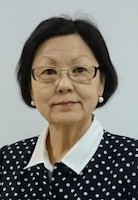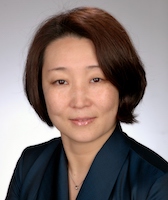Tuvan language in legal and functional aspect
DOI:
https://doi.org/10.25178/nit.2020.1.4Keywords:
language policy; Tuvan language; Tuva; mother tongue; active bilingualism; language loyalty; language shift; public debateAbstract
The article examines both positive and negative aspects of the language policy in the Republic of Tuva. Although Tuvan language still preserves its high demographic power and the status of a state language of one of the Russia’s constituent republics, the younger generation of Tuvans keeps suffering from a linguistic shift. The language is functionally weakening its position both as the state language of a region and as the first language of its titular ethnicity.
At present, slightly over 50% respondents from among Tuvans aged 18-30 are fluent in their native tongue, and over 70% of these speak Tuvan with their children. In the capital of the republic, only 62% of Tuvan schoolchildren study their native language. As a result, active Russian-Tuvan bilingualism is not universal among Tuvan children, while the number of those speaking only Russian keeps increasing. At the same time, in the countryside there are children who know little or almost no Russian. What is perceived as a contradiction between the positive attitude to the native language among Tuvans and the choice of Russian as the language of school education and even of family communication. This is due to the insufficiency or inaccessibility of information on the benefits of bilingualism and on the importance of one’s native language for children’s intellectual and emotional development, as well as their psychological stability.
An important positive factor of Tuva’s language policy is the start of a dialogue between its two major actors – the authorities and language activists. Under the State Development program of supporting Tuvan language, 2017-2020, language protection will receive financial aid, and the implementation of the program will be publicly discussed. This implies an opportunity to reverse the language shift and build up a balanced Tuvan-Russian and Russian-Tuvan bilingualism while preserving the existing interethnic consensus in the Republic of Tuva.
References
Alpatov, V. M. (2015) Iazykovaia politika v XXI veke [Language policy in the 21st century]. In: Iazykovaia politika v kontekste sovremennykh iazykovykh protsessov [Language policy in the context of modern linguistic processes] / ed. by A. N. Bitkeeva. Moscow, Azbukovnik Publishing center. 471 p. Pp. 10–19. (In Russ.).
Alpatov, V. M. (2018) Iazykovaia politika v sovremennom mire [Language policy in the modern world]. In: Iazykovoe edinstvo i iazykovoe raznoobrazie v polietnicheskom gosudarstve [Linguistic unity and linguistic diversity in a multi-ethnic state]: International conference (Moscow, November 14–17, 2018): reports / ed. by A. N. Bitkeeva and M. A. Goriacheva. Moscow, Iazyki narodov mira. 751 p. Pp. 24–33. (In Russ.).
Arutyunova, E. M. (2018) Ethno-linguistic problems and prospects in educational sphere of the Russian Republics (the case of Bashkortostan). Sotsiologicheskie issledovaniya [Sociological Studies], no. 4, pp. 25–35 (In Russ.). DOI: 10.7868/S0132162518040037
Bavuu-Surun, M. V. (2010) Tuvinskii iazyk na sovremennom etape: obrazovatel'nyi aspekt [Tuvan language on modern stage: educational aspect]. The New Research of Tuva, no. 3 [online] Available at: https://nit.tuva.asia/nit/article/view/500 (access date: 06.11.19). (In Russ.).
Bitkeeva, A. N. (2018) Razvitie iazykov Rossiiskoi Federatsii: dinamika, problemy, prognozy [The case study of the development of languages in the Russian Federation: dynamics, problems, perspectives]. Voprosy filologii, no. 1, pp. 31–38. (In Russ.).
Bitkeeva, A. N., Wingender, M. and Mikhalchenko, V. Yu. (2009) Prognozirovanie i iazykovoe mnogoobrazie v Rossiiskoi Federatsii: sotsiolingvisticheskii aspekt [Language prognosis and language diversity in the Russian Federation: sociolinguistic aspect]. Vestnik Volgogradskogo gosudarstvennogo universiteta, issue 2, Iazykoznanie, pp. 6–23. (In Russ.). DOI: 10.15688/jvolsu2.2019.3.1
Borgoiakova, T. G. (2002) Sotsiolingvisticheskie protsessy v respublikakh Iuzhnoi Sibiri [Sociolinguistic processes in the republics of southern Siberia]. Abakan, Khakass State University Press. 166 p. (In Russ.).
Borgoiakova, T. G. (2013) Razvitie bilingvizma v respublikakh Tyva i Khakasiia [Development of bilingualism in the Republics of Tuva and Khakassia]. Filologicheskie nauki. Voprosy teorii i praktiki, no. 7 (25), pp. 36–39. (In Russ.).
Borgoiakova, T. G. (2018) Iazyki korennykh narodov CShA: terminologicheskie i zakonodatel'nye aspekty [Indigenous Languages of the United States: Terminological and legislative aspects]. Filologicheskie nauki. Nauchnye doklady vysshei shkoly, no. 6, pp. 36–42. (In Russ.). DOI: 10.20339/PhS.6-18.036
Borgoiakova, T. G. and Guseinova, A. V. (2017) Status i funktsionirovanie tiurkskikh iazykov Iuzhnoi Sibiri [Status and functioning of the Turkic languages of southern Siberia]. Abakan, Khakass State University Press. 136 p. (In Russ.).
Golovko, E. V. (2016) Sovremennaia iazykovaia politika i problema sokhraneniia iazykovogo i kul'turnogo raznoobraziia v Rossiiskoi Federatsii [Modern language policy and the problem of preserving language and cultural diversity in the Russian Federation]. In: Sokhranenie i razvitie iazykov i kul'tur korennykh narodov Sibiri [Preservation and development of languages and cultures of indigenous peoples of Siberia]: Proceedings of the 4th research and practical International conference (Abakan, Republic of Khakassia, May 19–20, 2016) / ed. by T. G. Borgoiakova. Abakan, Khakass State University Press. 368 p. Pp. 9–12. (In Russ.).
Zamiatin, K., Pasanen, A., Saarikivi, Ia. (2012) Kak i zachem sokhraniat' iazyki narodov Rossii? [How and why to preserve the languages of the peoples of Russia?]. Ed. by Ianne Saarikivi. Khel'sinki, Vammalan Kirjapaino Oy, Vammala. 178 p. (In Russ.).
Lamazhaa, Ch. K. (2014) Zasaianskie tuvintsy: obraz zhizni, tsennosti, idealy [Tuvans beyond the Sayan mountains: way of living, values and ideals]. The New Research of Tuva, no. 3 [online] Available at: https://nit.tuva.asia/nit/article/view/138 (access date: 01.11.2019). (In Russ.).
Martan-ool, M. B. (2000) Problemy i perspektivy tuvinskogo iazyka [Problems and prospects of the Tuvan language]. In: Iazyki narodov Rossii: perspektivy razvitiia: materialy mezhdunarodnogo seminara [Languages of the peoples of Russia: Prospects for development]: Proceedings of the international seminar. Elista, APP «Dzhangar». 544 p. Pp. 137–147. (In Russ.).
Mongush, M. V. (2010) Odin narod: tri sud'by. Tuvintsy Rossii, Mongolii i Kitaia v sravnitel'nom kontekste [One people, three destinies. Tuvans of Russia, Mongolia and China in a comparative context]. Osaka, Natsional'nyi muzei etnologii. 358 p. (In Russ.).
Neroznak, V. P. (2002) Iazykovaia situatsiia v Rossii: 1991–2001 gody [Language situation in Russia: 1991–2001]. In: Gosudarstvennye i titul'nye iazyki Rossii. Entsiklopedicheskii slovar'-spravochnik [State and title languages of Russia: A dictionary and reference book] / ed. by V. P. Neroznak. Moscow, Academia. 616 p. Pp. 5–19. (In Russ.).
Seglenmey, S. F. (2007) K probleme bilingvizma v Tuve [On the problem of bilingualism in Tuva]. In: Russkii iazyk v Tuve [Russian language in Tuva]: Proceedings of the scientific and practical republican conference (November 22–23, 2007, Kyzyl) / ed. by B. K. Ondar. Kyzyl, TyvGU RIO. 138 p. Pp. 92–99. (In Russ.).
Seglenmey, S. F. (2016) Rol' rodnogo iazyka kak iazyka obucheniia v nachal'noi shkole [Role of the native language as the language of instruction in primary schools]. Vestnik Tuvinskogo gosudarstvennogo universiteta, no. 4, pp. 105–112. (In Russ.).
Slovar' sotsiolingvisticheskikh terminov [Dictionary of sociolinguistic terms] (2006) / ed. by V. Yu. Mikhal'chenko. Moscow, Institut iazykoznaniia RAN. 313 p. (In Russ.).
Sereedar, N. Ch. (2018) Tuvinskii iazyk kak sredstvo obshcheniia tuvintsev: problemy i perspektivy [Tuvan language as means of communication among Tuvans: problems and prospects]. The New Research of Tuva, no. 1 [online] Available at: https://nit.tuva.asia/nit/article/view/752 (access date: 05.11.2019). (In Russ.). DOI: 10.25178/nit.2018.1.1
Tsybenova, Ch. S. (2017) Sovremennaia iazykovaia situatsiia v Respublike Tyva: sotsiolingvisticheskii aspekt [Modern language situation in the Republic of Tuva: Sociolinguistic aspect] / ed. by G. A. Dyrkheeva. Irkutsk, Ottisk Publ. 170 p. (In Russ.).
Fishman, J. A. (1991) Reversing Language Shift. Theoretical and Empirical Foundations of Assistance to Threatened Languages. Clevedon & Philadelphia. Multilingual Matters. 431 p.
Published
How to Cite
Borgoiakova T. G. and Bitkeeva A. N. Tuvan language in legal and functional aspect. The New Research of Tuva, 2020, no. 1 [online] Available at: https://nit.tuva.asia/nit/article/view/914 (access date ... ). DOI: 10.25178/nit.2020.1.4
Issue
Section

Author(s) license holder(s) grant rights for their work to the journal (grantee of a license) under the simple non-exclusive open license in accordance with Art. 1286.1 «Open license for a research work, work of literature or fine arts», Civil Code of the Russian Federation.
New Research of Tuva publishes articles under the Creative Commons Attribution-NonCommercial license (CC BY-NC).
Since it is an open license, author(s) reserve the right to upload the article to their institutional repository, submit it to another journal (if it allows republications), or republish it on their own website (in full, or in part).
However, several conditions apply here:
a) The republished version must always contain the name(s) and affiliation(s) of the author(s), the original title and the hyperlink to the original version on the New Research of Tuva website;
b) It must be in open access, free of charge, and no category of readers must be in any way whatsoever advantaged over general readership.
c) should the contribution be submitted elsewhere by its author(s) without substantial modification (30% or more of original text unchanged), the body of the article should contain a disclaimer that the original version was published in New Research of Tuva (with a link to the respective page)
The CC-BY-NC is a non-revocable license which applies worldwide and lasts for the duration of the work’s copyright.










